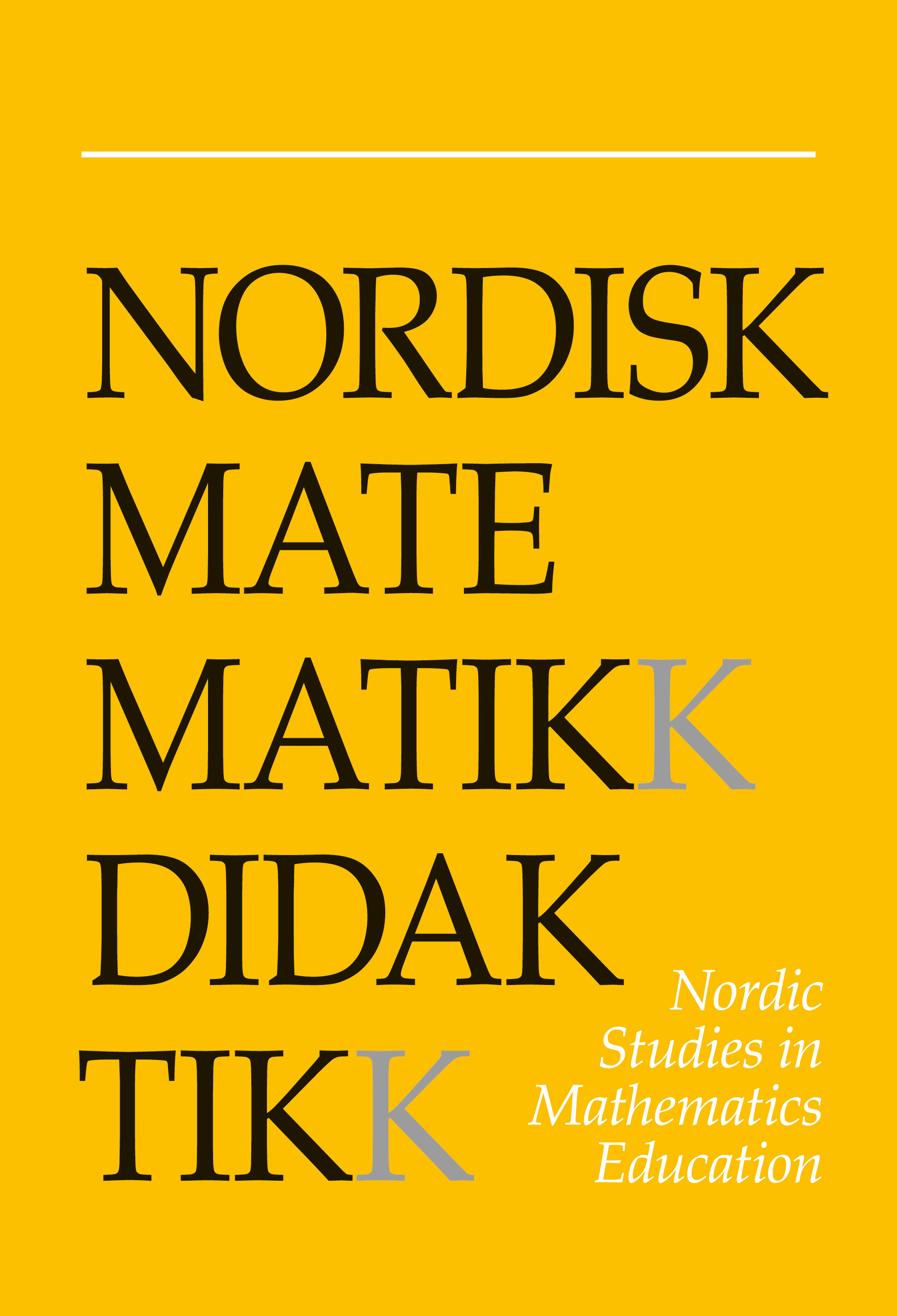Mathematics education as theoretical knowledge
DOI:
https://doi.org/10.7146/nomad.v3i4.146187Abstract
Didactics of mathematics (DM) is the theoretical part of our knowledge in mathe- matics education. Its connections with the mathematical sciences and with school mathematics determine the independent character of DM as a scientific discipline. Features of school mathematics such as its unique aims, the highly abstract nature and hierarchical construction of the material to be studied, and the varied kinds of educational activities lead to its specific character, situating it among the school subjects and making accepted theoretical conclusions exclusively applicable to mathematics education. The social character of DM generates the approaches to constructing categories within the discipline (inexact and "inaccurate" conceptions, exclusion principles in formulating absolute statements, plausible reasoning, diversity of proofs) and promotes the selection of adequate methods of research that are not typical of positivistic science (expert review, discussion, pedagogical experiment). The applied character of DM determines an appropriate methodology of research and efficient ways of overcoming contradictions. The concrete practice of education (partly in the form of experimental tests) gives teachers an opportunity to use "inaccurate" empirical methods, reasonable considerations, intuitive choice, and so forth. Some practical advice is given for discussing and conducting research projects.
References
Firsov, V. V. (1977). O prikladnoy orientatcii obucheniya matematike [On the applied orientation of mathematics education]. In Uglublennoe izuchenie algebry i analiza. Moscow: Prosveshchenie.
Firsov, V. V. (1982). The basic trends in the improvement of mathematics teaching in the present days of Soviet school. In B. Wilson (Ed.), Second Anglo-Soviet Seminar on Mathematics Education (pp. 22-27). London: British Council.
Firsov, V. V. (1995). K kontceptcii proekta standartov [To the concept of a standards project]. In Moskovskie obrazovatelnye standarty. Obyazatelnyi minimum soderghaniya obrazovaniya. Proekt. Moscow: Moscow Department of Education.
Khinchin, A. Y. (1961). O vospitatelnom effekte urokov matematiki [On the educative effect of mathematics lessons].In Matematicheskoyeprosveshchenie (No.6).Moscow: Fizmatgiz.
Khinchin, A. Y. (1968). On the educative effect of mathematics lessons. In B. V. Gnedenko (Ed.), The teaching of mathematics: Essays by A. Y. Khinchin (W. Cochrane & D. Vere-Jones, Trans. pp. 77-101). New York: American Elsevier. (Original work published 1963)
Lakatos, I. (1967). Dokazatelstva i oprovergheniya [Proofs and refutations]. Moscow: Nauka.
Myshkis, A. (1971). Chto takoe prikladnaya matematika [What is applied mathematics]. In Problemy prepodavaniya matematiki vo vtuzakh (No. 1). Moscow: Vysshaya shkola.
Polya, G. (1954). Mathematics and plausible reasoning. Princeton, NJ: Princeton University Press. https://doi.org/10.1515/9780691218304
Downloads
Published
How to Cite
Issue
Section
License

This work is licensed under a Creative Commons Attribution-NonCommercial-ShareAlike 4.0 International License.



